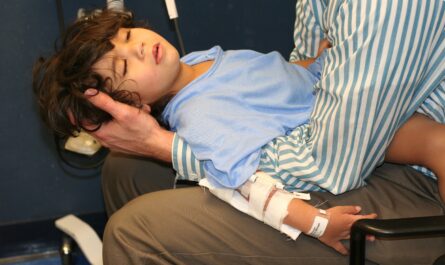A team of researchers at the RIKEN Center for Brain Science (CBS) has made a groundbreaking discovery in the field of autism spectrum disorder (ASD) genetics. By analyzing mutations in the genomes of individuals and their families, the researchers uncovered a special kind of genetic mutation that contributes to the condition in a unique way. This finding sheds light on the complex heritability of ASD and could have significant implications for diagnosis and treatment strategies.
ASD is a group of conditions characterized by repetitive behaviors and difficulties in social interaction. While it is known to run in families, unraveling its genetic roots has proven to be a challenging endeavor. Previous studies have shown that the high heritability of ASD cannot be solely explained by mutations in protein-coding regions of the genome. Instead, the answer may lie in the non-coding regions, particularly in the promoters, which control whether or not proteins are produced.
The team, led by Atsushi Takata at RIKEN CBS, focused on analyzing de novo gene variants, which are new mutations not inherited from parents, in these promoter regions. They conducted their research on a vast dataset of over 5,000 families, making it one of the largest genome-wide studies on ASD to date. The researchers honed in on three-dimensional structures in the genome called TADs (topologically associating domains), which facilitate interactions between nearby genes and their regulatory elements.
Their findings revealed that de novo mutations in promoters increased the risk of ASD only when these promoters were located in TADs containing genes associated with ASD. The proximity of these mutations to ASD-related genes allowed them to influence the expression of these genes, thereby contributing to the risk of developing ASD. This sheds light on how mutations can heighten the risk of ASD even if they are not located in protein-coding regions or in promoters directly controlling the expression of ASD-related genes.
To further validate their findings, the researchers used the CRISPR/Cas9 system to edit the DNA of stem cells, inducing mutations in specific promoters. As anticipated, they observed that a single genetic change in a promoter caused alterations in an ASD-associated gene within the same TAD. Consequently, this single mutation had a cascading effect on numerous genes linked to ASD and neurodevelopment throughout the genome. Takata likens this process to a genomic “butterfly effect,” where a single mutation disrupts the regulation of disease-associated genes scattered in distant regions of the genome.
These findings have significant implications for the development of new diagnostic and therapeutic strategies for ASD. Takata emphasizes the importance of looking beyond ASD-related genes when assessing an individual’s risk for the condition. Instead, the focus should be on analyzing whole TADs that contain ASD-related genes. Moreover, interventions that correct aberrant interactions between promoters and enhancers caused by promoter mutations could potentially have therapeutic effects on ASD.
However, further research involving more families and patients is necessary to deepen our understanding of ASD’s genetic architecture and biology. By expanding their research, the team hopes to gain insights that will lead to improved clinical management, enhancing the well-being of affected individuals, their families, and society as a whole.
*Note:
1. Source: Coherent Market Insights, Public sources, Desk research
2. We have leveraged AI tools to mine information and compile it




